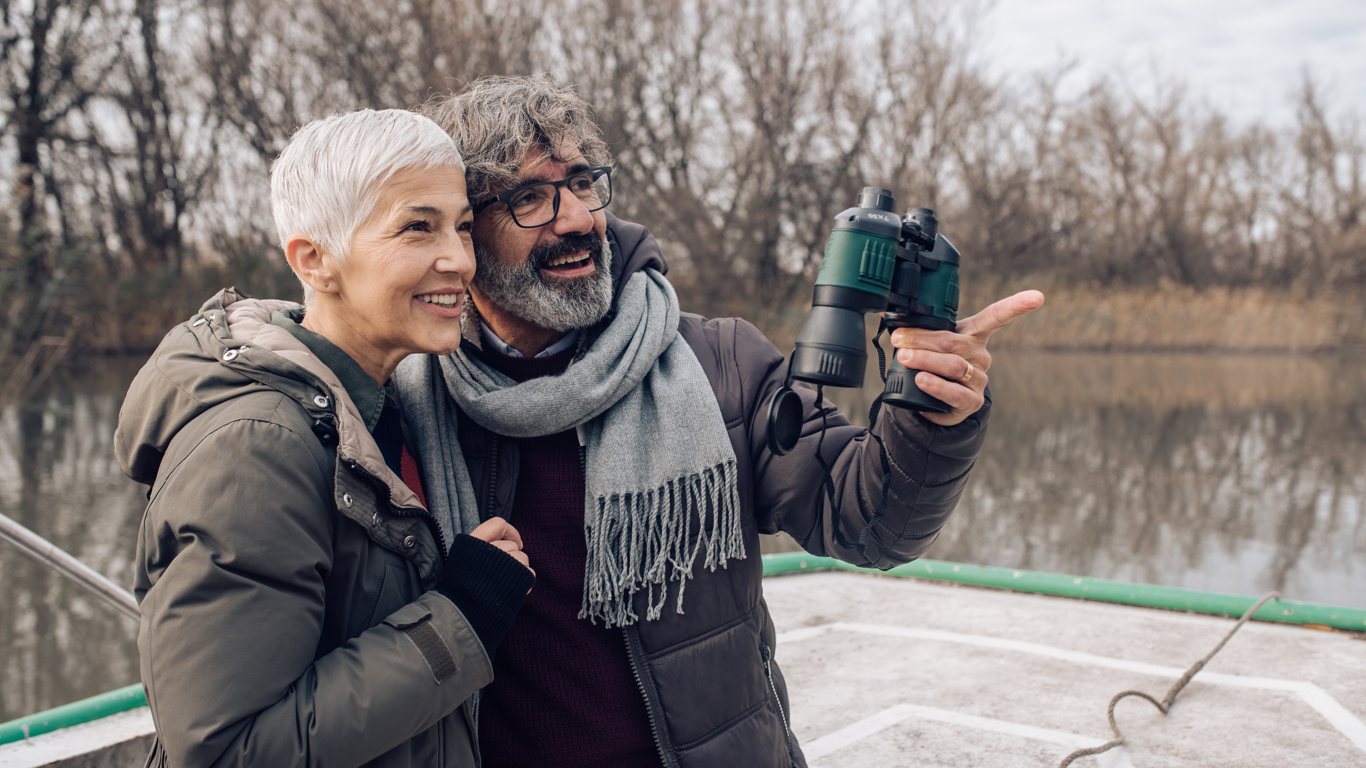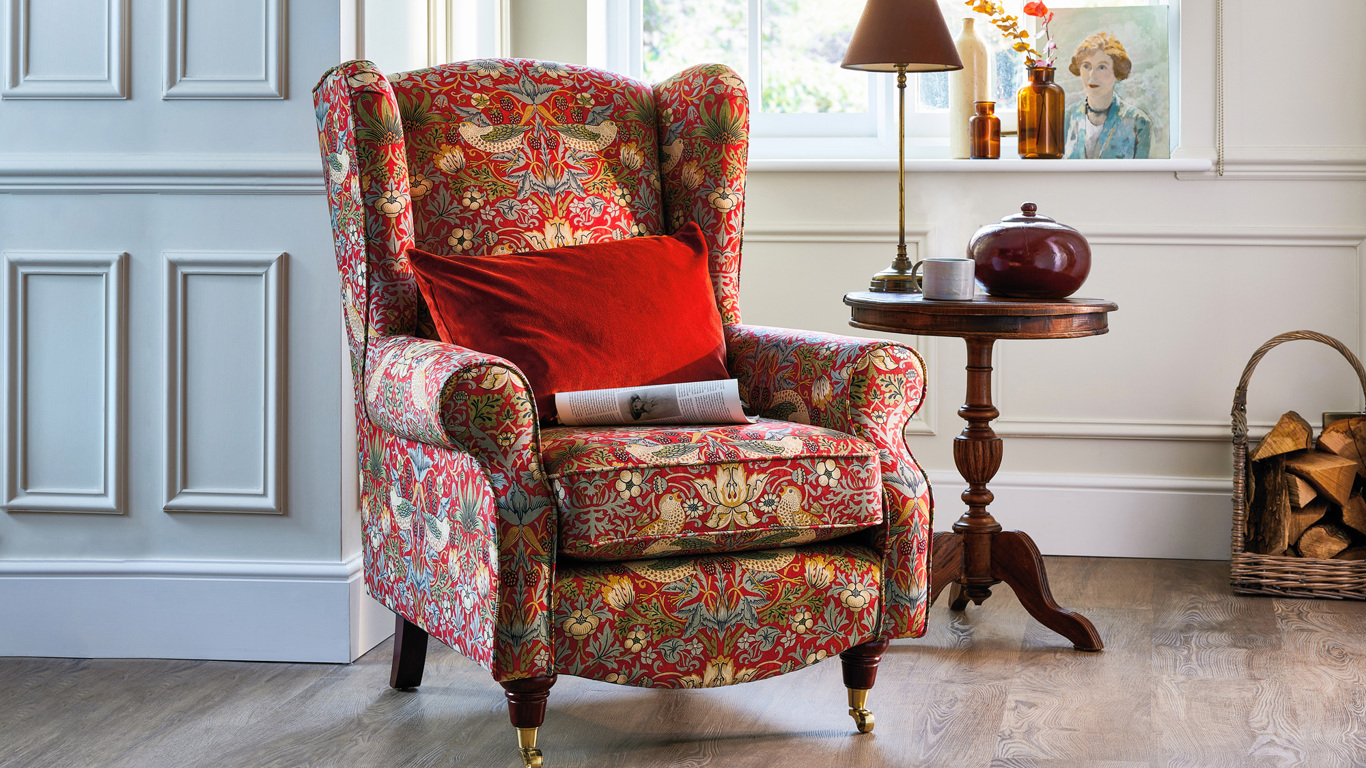5 ways birdwatching can boost your wellbeing

Have you been on the lookout for a new hobby that will bring you closer to nature? Do you have lots of enthusiasm and love learning about animals and their natural habitats? Well, you could join a thriving community of nearly 3 million other British enthusiasts in a popular recreational activity – bird watching.
What is bird watching?
Bird watching is a popular pastime that developed during the 20th century. It involves looking for and studying birds in their natural habitat without harming them. Whilst it has also been carried out in centuries past, in those times it usually involved shooting the birds to identify the more unusual breeds later. In the last century, the development of optical aids – particularly binoculars, has meant that the hobby can be carried out peacefully and without harming the animals themselves.
The hobby was first made popular in Britain, with America not far behind and other countries following suit shortly after. One of the biggest appeals of bird watching is that it is fairly inexpensive – all you need are binoculars (these can vary in price depending on how passionate you are about it), a field book to help identify birds, and a notebook and pen to record the place and time of the sighting. Another great part of it is that it’s not necessary to travel. Many people will put out feeders to attract a variety of their feathered friends to observe and enjoy.
What are the benefits of birdwatching?
Bird watching isn’t only an enjoyable pastime, it’s also very good for boosting your physical and mental wellbeing. Here are just some of the ways:
Fresh air and staying active
Whilst you could undertake this hobby from your window overlooking your garden if you wish, getting out in the fresh air helps to boost mind, body and soul. Not only does fresh outdoor air feel great, but it is also shown to clear your lungs, give you more energy and focus, lower blood pressure and heart rate, help you heal faster, and improve your digestion.
The more we move, the easier staying active becomes. HSL’s independent Occupational Therapist, Julie Jennings Dip COT HCPC explains why it’s so important to stay active:
“It is imperative to remember that it is never too late to reap the health rewards that come with a more active lifestyle. To put this into context, older adults can reduce their risk of heart disease and strokes to a similar level as younger adults who are also active. If people have been inactive for a while, then the best thing you can do is to just get moving. For the more we do, the greater the health benefits we can expect to achieve.”
Calming
Patience is a virtue that can take a lifetime to master. What better way to practice than to incorporate it into a hobby? Birds are beautiful creatures that are truly worth the wait – but wait you must! As you sit and await your delightful feathered friends’ visit, you’ll be refining your ability to delay gratification and perfect the proverb “all good things come to those who wait”.
If you’re able to do your birdwatching outdoors, then being around nature can be a great way to combat stress and relax. Birdwatching can have a very meditative effect and can often provide you with the opportunity to spend time in a quiet place without the usual distractions of life.
Additionally, Care UK says that “for those living with dementia, getting out and experiencing the nature around them has been shown to reduce stress, anxiety and depression.”
Vitamin D production
The benefits of vitamin D, sometimes called the “sunshine vitamin”, are fast becoming more commonly known, but for anyone who is unaware, one of the (many) great benefits of this amazing vitamin is that it boosts the immune system. Whilst it’s advised that you take vitamin D3 supplements to boost your levels, being out in the sunshine is the most natural way of increasing your body’s production. As such, when you are out watching your beloved birds and the sun is shining, vitamin D is made under the skin.
According to Healthline, “When your skin is exposed to sunlight, it makes vitamin D from cholesterol. The sun’s ultraviolet B (UVB) rays hit cholesterol in the skin cells, providing the energy for vitamin D synthesis to occur. Vitamin D has many roles in the body and is essential for optimal health.”
Don’t forget, whilst your skin loves to have the sun shining on it, you need to do this safely and without damaging it. Ensure you wear the appropriate amount of sun cream, so that whilst you’re exposed to sunlight, you’re doing so without burning.
Increase your reflexes
Whilst we’ve already touched on the need to hone your patience skills, when the birds do appear – it can be in a flash. You’ll need to practice quickly reaching for your binoculars, reference book and pen so that you can note down what you saw – and then look it up quickly so that you can confirm it. If you’ve got your camera handy, you could also snap a picture and immortalise the moment you finally caught sight of that rare hawfinch, nightingale or wood warbler.
Connecting with nature
Finally, what better way to spend your time than to connect with nature? Whilst long hikes might not be on your agenda anymore, that doesn’t mean you can’t get your regular dose of nature’s beauty. Go out for a walk, go to a bird watching hot spot, or simply sit in your garden and enjoy what mother nature has given us to wonder at.
Care UK explains the benefits of getting outside, especially if you are in the later stages of life:
“Spending time in nature can have some incredibly positive effects on our mental health, but the different sights, colours, smells and sounds found outside can all help occupy the mind, and help provide a fantastic distraction.
Getting outdoors and hearing birdsong, for example, can also help people recall memories from younger years, and connecting with nature can be an invaluable reminiscence activity.”
What should you remember?
The RSPB has a code of birdwatching that it encourages all birdwatchers to live by:
- Avoid disturbing birds and their habitats – the birds’ interests should always come first.
- Be an ambassador for birdwatching.
- Know the law and the rules for visiting the countryside, and follow them.
- Send your sightings to the County Bird Recorder and the Birdtrack website (link available on RSPB website).
- Think about the interests of wildlife and local people before passing on news of a rare bird, especially during the breeding season.

If you are particularly partial to beautiful birds, you’ll love our William Morris designer fabric, Strawberry Thief, with its intricate bird print design inspired by the thrushes that Morris found stealing fruit in the kitchen garden of his countryside home. Available on many of our stunning fireside chair ranges, you can enjoy bringing the outside into your own living room.
Sign up for our newsletter
Sign up for our newsletter to hear about our exciting new collections, interior trends, wellbeing advice as well as exclusive offers.



